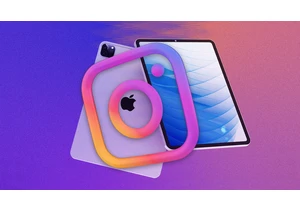Mark Zuckerberg’s marathon stint on the stand in the Federal Trade Commission’s (FTC) antitrust trial against Meta—the parent company of WhatsApp, Instagram, and Facebook—has been eye-opening for several reasons. For hours, Zuckerberg has defended his company against accusations that it stifles competition by acquiring rivals just as they begin to pose a threat.
A 2012 email chain presented by the FTC seems to tell its own story. In it, Zuckerberg discusses acquiring Path and Instagram, both emerging competitors at the time. “The businesses are nascent but the networks are established, the brands are already meaningful and if they grow to a large scale they could be very disruptive to us,” Zuckerberg wrote, proposing Facebook buy them. (In court this week, the Meta CEO denied that he was specifically referencing Instagram or Path, claiming he was speaking more generally about competitors.)
Critics say the email chain reflects Meta’s broader strategy—something Zuckerberg himself outlined in a subsequent 2012 email: “Even if some new competitors springs [sic] up, buying Instagram, Path, Foursquare, etc now will give us a year or more to integrate their dynamics before anyone can get close to their scale again. Within that time, if we incorporate the social mechanics they were using, those new products won’t get much traction since we’ll already have their mechanics deployed at scale.”
Meta declined to comment on the record to Fast Company about the similarities between its features and those of its competitors. In court, the company’s attorney described the FTC’s case as a “grab bag” of arguments “at war with the facts and at war with the law.”
Of course, borrowing ideas from competitors—from broad concepts to specific features—isn’t unusual in the social media world. But while many companies do it, Meta has often moved faster and more aggressively than most. “Meta’s copycat strategy isn’t a secret,” says social media expert Matt Navarra. “It’s a business model. Zuckerberg’s copy-paste playbook is often mocked and imitated, but has been hugely successful and made Meta into the global superpower of social media that it is today.”
Here are eight notable examples from the past decade:
2016: Instagram Stories (following Snapchat)
Snapchat changed the social media landscape in October 2013 with its Stories feature, allowing users to post photos or videos that disappeared after 24 hours. The feature quickly became popular—which may explain why, in 2016, Instagram (owned by Facebook) introduced its own version of Stories.
2018: Lasso (following TikTok)
By 2018, TikTok was gaining momentum among younger users—a demographic Facebook was struggling to retain. That November, Facebook launched Lasso, a standalone app for short-form, entertaining videos. Leaked audio later revealed Zuckerberg’s strategy: launch Lasso in markets where TikTok hadn’t yet taken hold. (Lasso shut down in 2020 after failing to gain traction.)
2019: Facebook Dating (following Tinder and others)
By the late 2010s, dating apps like Tinder had become mainstream. In 2019, Facebook launched Facebook Dating, letting users browse profiles and swipe to match—much like the established players in the space.
2020: Hobbi (following Pinterest)
Facebook’s internal R&D team released Hobbi, an app allowing users to organize and share photos of their hobbies—a clear nod to Pinterest. Tech media described it as “an experiment in short-form content creation around personal projects, hobbies and other Pinterest-y content.” Hobbi lasted only a few months, with fewer than 10,000 reported downloads.
2020: Reels (following TikTok)
After the failure of Lasso, Facebook took another shot at competing with TikTok by launching Reels. In fairness, YouTube also responded to TikTok’s rise with its own version, YouTube Shorts. Still, critics have pointed to the nearly identical interfaces across these platforms as evidence of big tech’s copycat culture.
2020: Neighborhoods (following Nextdoor)
In 2020, amid the COVID-19 pandemic’s surge in local community engagement, Meta launched Neighborhoods—a feature allowing users to post content visible only within their local area. Social media experts dubbed it a “Nextdoor clone.” The service shut down after about two years.
2021: Bulletin (following Substack)
As newsletters surged in popularity thanks to platforms like Substack, Meta quickly followed suit with its own newsletter tool, Bulletin. The service attracted big-name writers, including Malcolm Gladwell. But Bulletin was short-lived, shutting down in early 2023.
2021: Live Audio Rooms (following Clubhouse)
Clubhouse pioneered the rise of social audio during the pandemic, with Twitter Spaces quickly following. By mid-2021, Meta launched Live Audio Rooms, its own real-time voice chat feature. It, too, was shut down by the end of 2022.
Autentifică-te pentru a adăuga comentarii
Alte posturi din acest grup

Meta has spent 15 years shunning the iPad. Now, it seems they’re finally ready to embrace the tablet lovers.
WhatsApp users can finally text from the big screen. On Tuesday, Meta a

According to new research from Whop, a marketplace for digital products, one in three Gen Z consumers now make purchasing decisions based on recommendations from AI-generated influencers.

Big U.S. banks are holding internal discussions about expanding into cryptocurrencies as they get stronger endorsements from regulators, but initial steps will be tentative, centering on pilot pro

I can tell you the exact moment when a new browser called Deta Surf clicked for me.
I was getting a demo from Deta cofounder Max Eusterbrock, and he showed me how

Two romantasy authors have publicly defended their use of artificial intelligence after being caught with AI-generated prompts left in their published works. While their readers are far from impre

After back-to-back explosions, SpaceX launched its

Chris Rogers, Instacart’s current chief business officer, is taking over as the delivery giant’s next CEO, the company announced on Wednesday.
Rogers, who has worked at Insta
